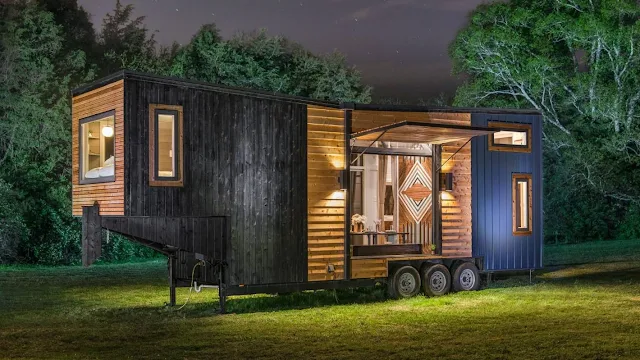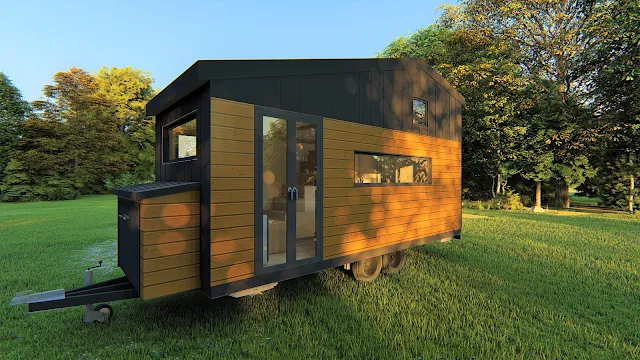Tiny houses serve as a renewed concept in real estate. After decades of building bigger and bigger homes, a few people are recognizing the impact of large houses on the environment. Instead, they are opting for these miniature homes that provide much needed freedom. Now there are companies that build these homes, sell floor plans, rent or sell them. Despite the similarity to RV or camper, these homes offer an alternative living style. With a size under 500 square feet, it's not a lifestyle accepted by the majority, but the popularity is rising. As a form of permanent residence, these tiny homes have their own unique set of benefits and challenges.
First and foremost, smaller homes offer financial freedom that most Americans could only dream of. Image a life without worrying about mortgage payments. What would you do with that extra money? Image not having to work so hard to pay the mortgage, what would you do with your time? These tiny houses also have much smaller utility bills.
Some of these homes have plumbing and electricity just like a regular house, only on a much smaller scale that leads to much smaller utility bills. The more eco-conscious residents may install a solar panel and use propane for heat during the winter. Some choose to use composting toilets that turns human excretion into compost. In this case, no septic system is necessary.
 |
| Tiny Houses, Big Changes |
There is also geographical freedom. Considering how many people make long commutes daily because the sizable home they can afford is so far away, small homes present the geographic flexibility as they take up so little land. Previous research evidence showed there was a link between long commute and poor health.
Those who drive long distances to work tend to be less physically active and suffer from hypertension. Tiny homes are easy to move as the owner relocates, saving relocation expenses. Smaller residence also forces the owner to expand their living area onto a deck, garden, and surrounding area. This works for those loving the outdoors and connecting with nature.
What attracts people to a small home is more than its size; it's the lifestyle behind it. Limited space forces people to cut down on unnecessary possessions. In the land of excess, most people own way more than they need. When designed efficiently, these tiny homes can serve all functions of regular sized homes.
There are plenty of challenges to living in a house the size of a walk-in closet. Small space can easily get cluttered if one gets away from the minimalist mindset. It also may lead to cabin fever during days of inclement weather.
 |
| Tiny Houses, Big Changes |
Not all neighborhoods welcome miniature houses. Some have building codes that specify a range of home sizes. Neighbors may despise them in fear of a drop in real estate value. On top of that, how different do you want to be from your friends or colleagues? Our residence is a display of our status, wealth, and success.
After all, it takes a special kind of mindset, personality, and motivation to choose tiny homes over gigantic mansions. On one hand, there's freedom from financial and geographical restraints. On the other hand, there's a great social norm to conform to in order to fit in.
Could you live in a tiny house?













0 comments:
Post a Comment